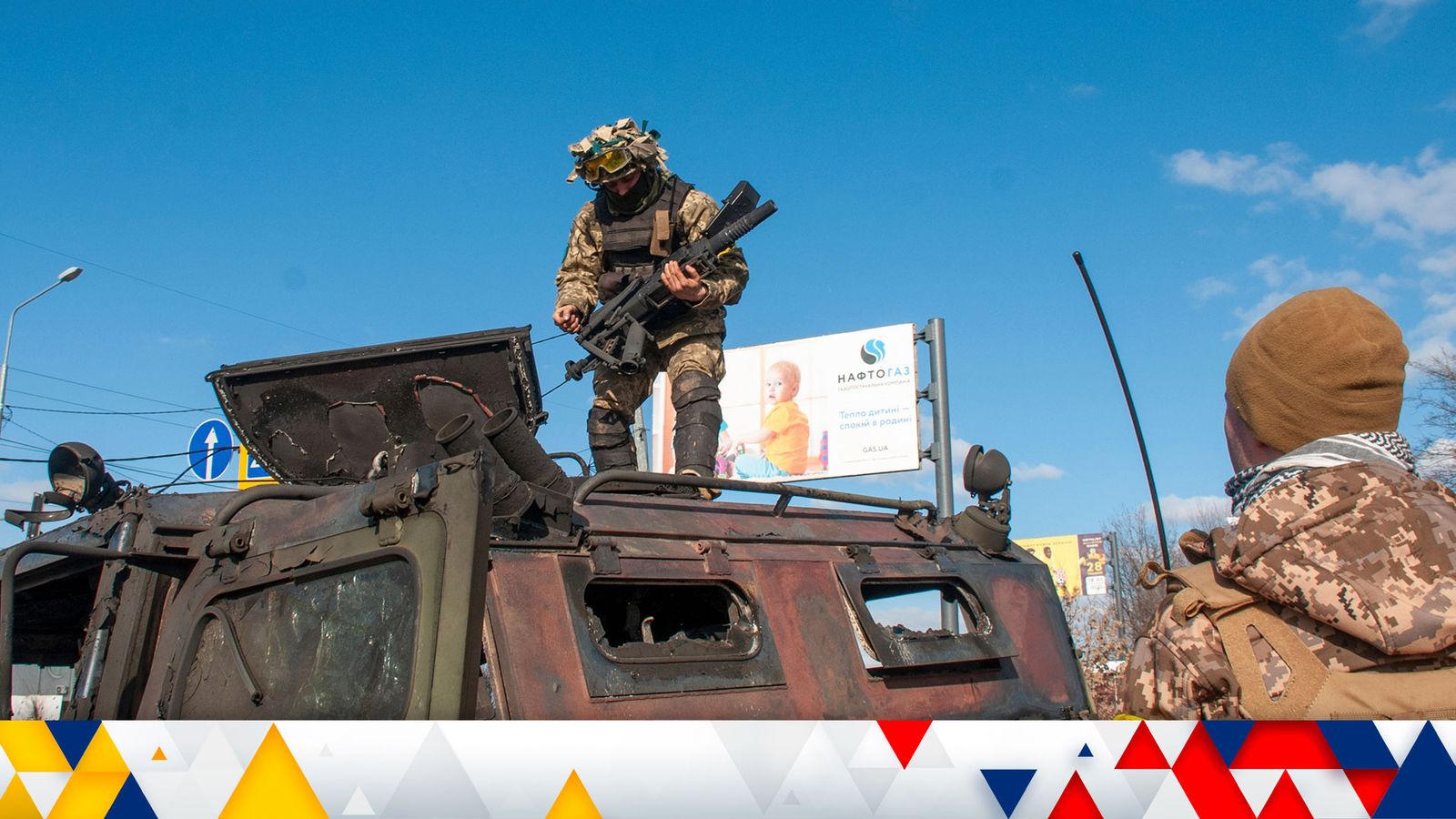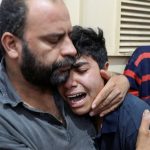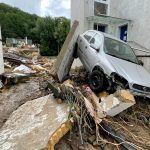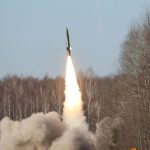Russia’s invasion of Ukraine is now into its fifth day, with key cities thought to be still under government control.
Despite Russian advances, Kharkiv in the east of Ukraine, the capital Kyiv, and other major locations throughout the country remain in Ukrainian hands – but why has progress by Russian forces been slower than expected?
Sky News talks to Professor Michael Clarke, former director general of the Royal United Services Institute (RUSI) and a security analyst, who offers his assessment of the current situation.
Ukraine-Russia live: Putin’s nuclear deterrent alert is ‘distraction’, UK believes – as Kyiv officials arrive at Belarus border for talks
Why is the Russian advance going so slowly throughout Ukraine?
This is the first time the Russians have employed a combined arms operation since 1979, with everything since being alongside special forces, elite forces and Russian mercenaries working with locals – and those were ruthless and brutal.
This full scale offensive in Ukraine isn’t something they are used to.
Ukraine invasion: Liz Truss comments sparked Putin decision to put nuclear deterrence forces on high alert, Kremlin says
Roman Abramovich: Chelsea owner trying to find ‘peaceful resolution’ to Ukraine invasion, spokesman says
Ukraine invasion: Kremlin says EU is ‘acting in a hostile fashion towards us’ over arms supplies to Kyiv
There are also a large number of conscripted men, many of whom do not want to be there.
There are lots of reports that they’ve been kind of lacklustre, giving in, surrendering and that they don’t see why they should be fighting people who are basically their equals.
As well as that, the whole plan was too thin – they were trying to do too much with 190,000 troops.
Please use Chrome browser for a more accessible video player
Is the Ukrainian defence a major factor?
In the first 24 to 48 hours, they were doing really rather well – now they’re doing extraordinarily well. To be still fighting on day five is astonishing.
The Russians were trying to do this the easy way, without using heavy weaponry – but they could get much more ruthless and destructive if they wanted to.
At the moment, you have lightly armed forces racing to Kyiv to surround it and remove the government, and the Ukrainians, who are well organised and well-equipped, are doing well defending them.
Everywhere, but especially around the Donbas region, they seem to put up amazingly good resistance – but time will tell as to whether they can continue.
What about Kharkiv – near the Russia-Ukraine border?
Kharkiv, the second city, is near to the Russian border and is quite pro-Russian.
Russians surrounded Kharkiv, but they have not yet moved in on it, and they’re being pushed in to the suburbs as far as we know.
We thought Kharkiv would go within a day and that Mariupol would go in the first few hours, and then the Russians would work from there – but so far, they haven’t.
And it’s getting worse – it wasn’t going very well for them on Saturday and it was going really quite badly for them on Sunday.
And here we are on Monday – it’s turning into a military disaster.
Please use Chrome browser for a more accessible video player
Is it easier to defend a city than attack it?
The city gives the defenders all the advantages, and attacking one is the hardest thing for any military to do.
Attackers absolutely hate it, and for good reason, because you lose a lot of people trying to take the city.
The only way you really take one down is to destroy them and blast them.
Every time you take an area of a city, you lose a few more troops who have to stay behind and reinforce the areas they have cleared, and that happens day after day.
The way around that is that you become really brutal, which is what the Russians did in Aleppo (Syria) or Mosul (Iraq), and bombing them from the air to smithereens.
Follow the Daily podcast on Apple Podcasts, Google Podcasts, Spotify, Spreaker
Are Russian supplies being stretched?
There’s a lot of of very strong fragmentary evidence that they only seem to have three or four days’ supply of ammunition – the missiles, the artillery shells and the fuel.
It speaks either of complacency on the part of the Russian military thinking, “well, they’re bound to sweep away these little Ukrainians in three days”, or a huge degree of corruption, the sort that used to exist in the old Red Army, with commanders pocketing fuel for cash.
What next for the Russians?
They have got three options.
They could carry on as they are and just to do everything the hard way and take all the political flak – and every day the Ukrainian government is still on its feet, then the Russians lose.
The second option is look for a way out, which Putin is obviously exploring or is interested in exploring in these talks, though I don’t think they’re going to come to anything.
The third option is just go brutal, and decide that, come what may, regardless of the casualties, this is your policy.
I think Mr Putin’s going to hop between looking for a way out and going brutal – attempting to seize Kyiv by any means, while trying to negotiate out.
Read more:
The security men, officials, and friends who are in Russian president’s inner circle
West must ensure sanctions don’t inadvertently entrench Putin deeper into power
Putin has raised the abhorrent spectre of a nuclear option – could it be a sign of desperation?






















